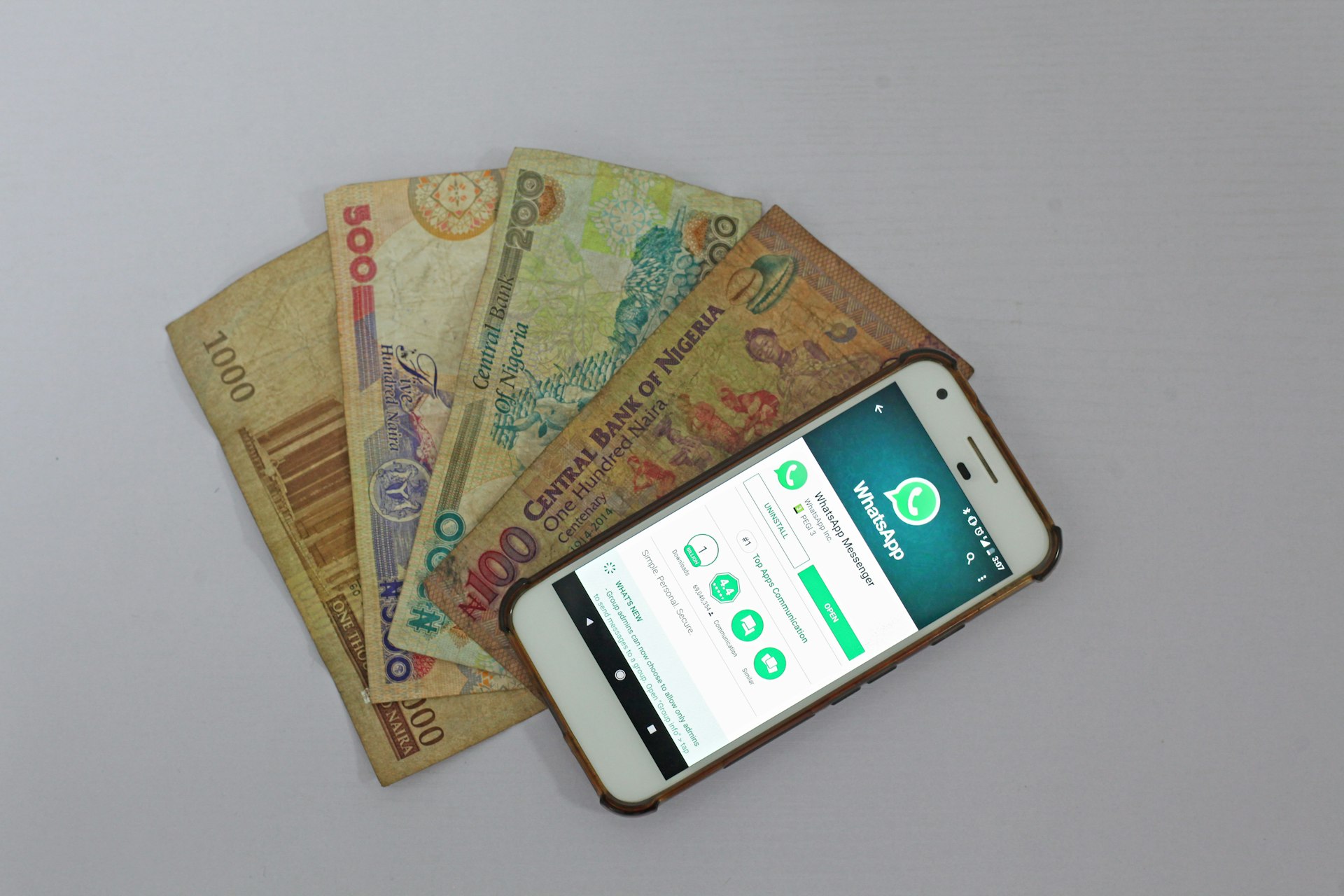Blockchain Innovation: Transforming Property Transactions with Security, Speed, and Transparency

Photo by Klim Musalimov on Unsplash
Introduction: The New Era of Property Transactions
Property transactions have historically been complex, slow, and opaque. Blockchain technology is poised to revolutionize this sector by creating a transparent, efficient, and secure foundation for buying, selling, and managing real estate assets. The integration of blockchain in property transactions offers both individuals and businesses unprecedented benefits, including reduced costs, faster processing, increased trust, and new investment models. In this article, you’ll find a thorough exploration of how blockchain is actively transforming real estate, with practical guidance for accessing these evolving opportunities.
Understanding Blockchain in Real Estate
Blockchain is a distributed digital ledger that records transactions securely and transparently. In real estate, blockchain can capture every step of a property’s lifecycle-from initial listing to final sale-on an immutable record accessible to all relevant parties. This reduces the need for intermediaries, lowers the risk of fraud, and increases process efficiency. Key features include:
- Immutability : Once recorded, transactions cannot be changed, ensuring data integrity.
- Transparency : All parties can verify and audit transactions in real time, fostering trust.
- Security : Advanced cryptography protects sensitive property and personal data.
For buyers and sellers, this means a significant reduction in administrative burdens and transaction delays, while real estate professionals can focus on higher-value tasks rather than paperwork. [2]

Photo by Gene Gallin on Unsplash
Core Applications: How Blockchain is Used in Property Transactions
1. Smart Contracts for Automated Transactions
Smart contracts are self-executing agreements with the contract terms directly written into code. In property transactions, these contracts can automate processes such as payment transfers, title changes, and escrow services. Once predefined conditions are met-such as receipt of funds or regulatory approval-the smart contract executes the transaction instantly without human intervention. This automation minimizes errors and eliminates costly delays. [3]
For example, in 2017, an apartment in Kyiv was purchased via an Ethereum-based smart contract, eliminating the need for traditional brokers and reducing transaction time. [1]
2. Fractional Ownership and Tokenization
Blockchain enables the division of property ownership into digital tokens, allowing investors to purchase fractional interests in real estate. This process, known as tokenization, lowers barriers to entry and increases market liquidity. Token holders can trade their shares on blockchain-enabled platforms, similar to trading stocks, bringing new flexibility and diversity to real estate investment. [4]
One leading example is Harbor, which facilitates tokenized real estate assets, enabling investors to buy and trade fractions of properties globally. [2] The market for tokenized real estate is expected to grow rapidly, with projections of a $19.4 billion market by 2033. [4]
3. Secure and Transparent Land Registries
Traditional land registries can be slow, error-prone, and susceptible to fraud. By migrating registries to blockchain, property records become transparent, easily auditable, and highly secure. Governments and agencies in Dubai and Sweden have implemented blockchain-based registries, resulting in expedited deal times-Dubai reports up to 90% faster transactions-and significant annual savings. [1]
To benefit from these systems, property owners may need to work with local authorities or select platforms that have partnered with government agencies. It’s advisable to consult your city or country’s official land registry for blockchain integration updates.
4. Enhanced Due Diligence and Compliance
Blockchain’s transparent nature supports rigorous due diligence and compliance processes. Anti-Money Laundering (AML) and Know Your Customer (KYC) checks can be automated, reducing the risk of fraud and streamlining regulatory approvals. As tokenization grows, stricter SEC requirements and compliance protocols must be followed. Companies and investors should consult legal and regulatory experts familiar with blockchain-based property transactions to ensure compliance. [4]
Real-World Examples: Blockchain in Action
Several high-profile projects have demonstrated the tangible benefits of blockchain in real estate:
- First Blockchain Real Estate Sale (Ukraine, 2017) : An apartment was sold using Ethereum smart contracts.
- NFT Property Sale (USA, 2022) : A Florida home was sold as a non-fungible token (NFT) on the Propy platform, showcasing new monetization models.
- Dubai Blockchain Registry : The Dubai Land Department migrated thousands of property transactions to blockchain, reducing average deal times by 80-90%.
- Sweden’s Blockchain Pilot : Sweden’s digital land registry is expected to generate over €100 million in annual savings. [1]
Step-by-Step Guidance for Accessing Blockchain-Based Property Services
Engaging with blockchain-enabled property services involves several steps:
- Identify Blockchain-Enabled Platforms: Research established companies such as Propy, RealT, and Harbor. Visit their official websites or seek guidance from trusted industry directories. For commercial properties, consult large firms’ technology offerings or Deloitte’s blockchain in real estate reports. [3]
- Verify Platform Compliance: Ensure any platform you consider complies with local regulations, including SEC registration for tokenized assets and proper AML/KYC procedures.
- Understand Investment and Transaction Processes: Review the platform’s educational materials, FAQs, and customer support channels. If uncertain, contact their help desk or request a demo.
- Consult Legal and Financial Experts: Engage professionals with proven experience in blockchain real estate transactions to avoid legal or regulatory pitfalls.
- Initiate Transactions: For buyers and sellers, create an account on your chosen platform, complete all required verification steps, and follow guided transaction flows. For investors, research tokenized offerings and assess risk profiles before participating.
If you are unable to find a suitable blockchain-enabled service in your region, consider reaching out to your national real estate association or government land registry to inquire about upcoming blockchain pilots or approved platforms.
Challenges and Solutions
While blockchain’s benefits are substantial, several challenges remain. Regulatory uncertainty, lack of standardization, and the need for digital literacy can impede adoption. To address these:
- Stay Informed: Follow industry news from reputable sources, such as Deloitte’s real estate insights or academic publications.
- Engage with Industry Groups: Join discussions with PropTech associations and blockchain consortia to learn about best practices.
- Advocate for Clear Regulations: Support calls for updated legal frameworks to support blockchain adoption in real estate.
It’s important to approach blockchain opportunities with caution, verify platform legitimacy, and seek professional advice before making significant transactions.
Future Outlook: What’s Next for Blockchain in Property Transactions?
Experts anticipate rapid growth in blockchain-enabled property transactions, with tokenization potentially accounting for up to 20% of all real estate deals by 2025. [4] Integration with artificial intelligence may further improve predictive analytics for property trends and risk management. [3] As adoption widens, ongoing innovation will continue to enhance security, efficiency, and accessibility in the global property market.
References
- Nevestate (2025). How Blockchain is Transforming the Real Estate Market in 2025.
- International Journal of Science and Research Archive (2025). Advancements in blockchain technology for real estate transactions.
- Debut Infotech (2023). 15 Blockchain Real Estate Companies to Watch in 2025.
- Primior (2025). Real Estate Tokenization In 2025: What Blockchain Companies Must Know About SEC Rules.
- Deloitte (2025). Blockchain in commercial real estate: The future is here.
MORE FROM moneysaversearch.com













